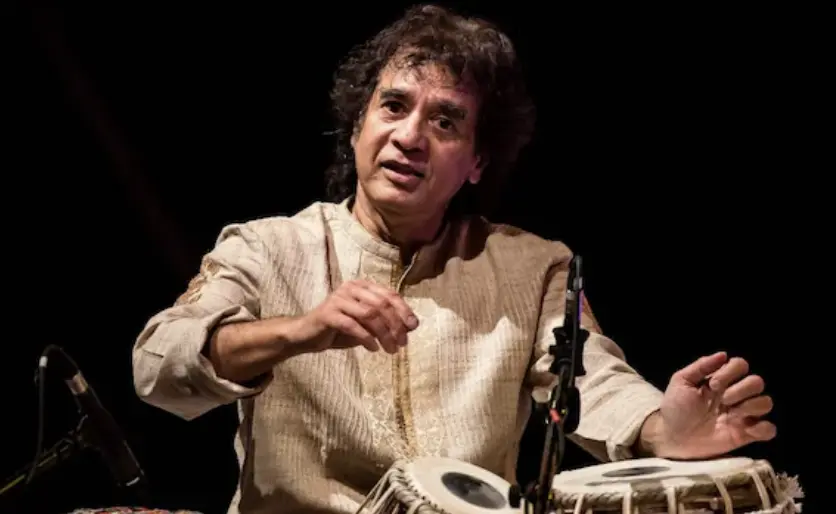Zakir Hussain: The World Loses a Maestro, But His Legacy Resonates Forever
Today, the world of music mourns the loss of Zakir Hussain, an unparalleled tabla virtuoso and one of the most celebrated icons of Indian classical music.

Zakir Hussain no more Pic Moneycontrol
Today, the world of music mourns the loss of Zakir Hussain, an unparalleled tabla virtuoso and one of the most celebrated icons of Indian classical music.
Hussain, 73, passed away at a hospital in San Francisco, succumbing to idiopathic pulmonary fibrosis, a rare and incurable lung disease. The news, confirmed by his family, marks the end of an era for Indian classical music and the global music community.
Born on March 9, 1951, in Mumbai, Zakir Hussain was destined for greatness as the son of legendary tabla maestro Ustad Alla Rakha. From a young age, Hussain exhibited prodigious talent and a profound understanding of rhythm. He began performing publicly at the age of seven and soon established himself as a child prodigy in the realm of Indian classical music. By his twenties, he had become an indispensable force in the world of tabla, carrying forward the illustrious legacy of his father while charting his own innovative path.
Throughout his career, Hussain redefined the role of the tabla, elevating it from a mere accompaniment instrument to a powerful solo presence. His performances, marked by precision, creativity, and an unmatched sense of rhythm, captivated audiences worldwide. Whether accompanying legends like Pandit Ravi Shankar, Ustad Ali Akbar Khan, or performing solo, Hussain’s artistry resonated with both connoisseurs and casual listeners.
Hussain was not just a stalwart of Indian classical music but a pioneer in cross-genre collaborations. His work with guitarist John McLaughlin in the fusion band Shakti is often hailed as a groundbreaking blend of Indian classical music and jazz. Similarly, his collaborations with artists like George Harrison, Mickey Hart, and Yo-Yo Ma brought Indian rhythms to a global audience, earning him international acclaim.
He also composed soundtracks for several movies, most notably In Custody and The Mystic Masseur by Ismail Merchant, also contributing massively to the soundtracks of Francis Coppola's Apocalypse Now and Bernardo Bertolucci's Little Buddha, among others.
Over his lifetime, Hussain’s contributions earned him countless accolades. He was a recipient of the Padma Shri (1988) and Padma Bhushan (2002), two of India’s highest civilian honors. Internationally, he received a Grammy Award in 2009 for his collaboration on the album Global Drum Project and was celebrated as a cultural ambassador of Indian music.
Despite his global fame, Hussain remained deeply rooted in tradition. He was a tireless advocate for the preservation and propagation of Indian classical music. Through teaching, mentorship, and performances, he inspired generations of musicians and played a pivotal role in keeping the art form alive and relevant.
Hussain’s passing leaves an irreplaceable void in the world of music. Tributes have poured in from all corners of the globe, with musicians, fans, and dignitaries celebrating his life and mourning his loss.
Zakir Hussain’s legacy transcends his extraordinary skill as a musician. He was a bridge between cultures, a visionary who believed in the unifying power of music. As the world bids farewell to this maestro, his rhythms will continue to echo, inspiring future generations and reminding us of the boundless beauty of art. Rest in peace, Ustad Zakir Hussain. You will be missed, but your music will live on forever.
